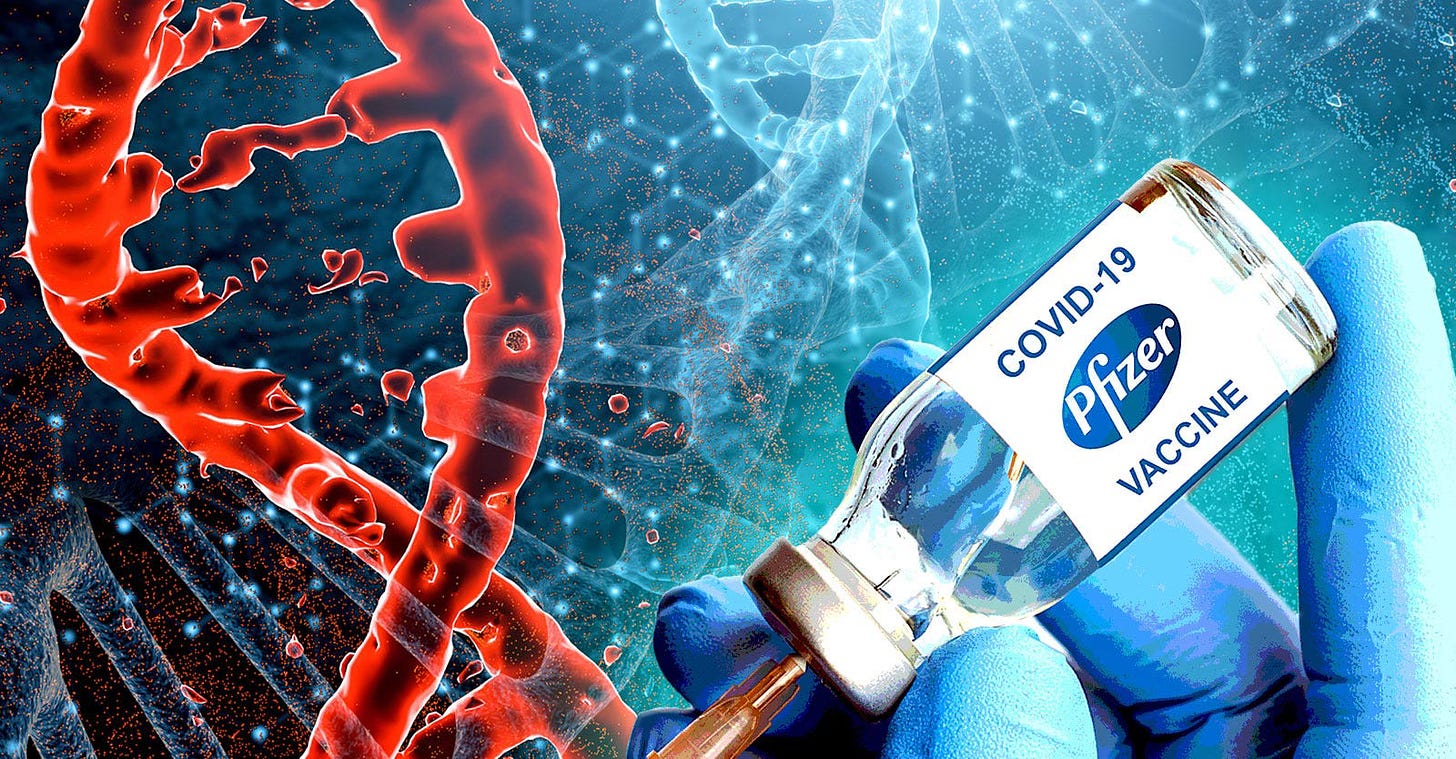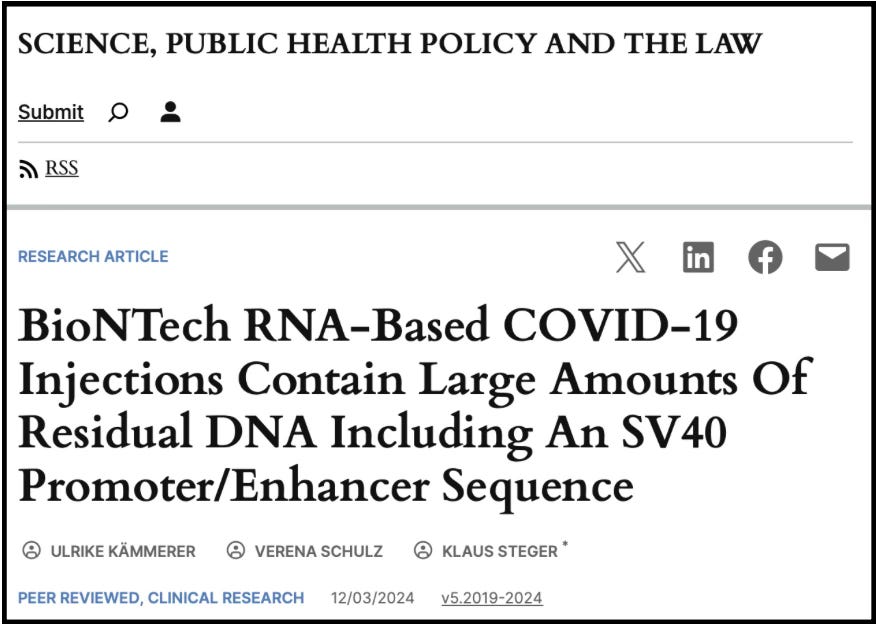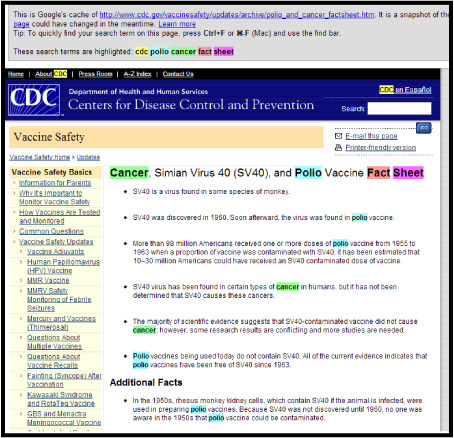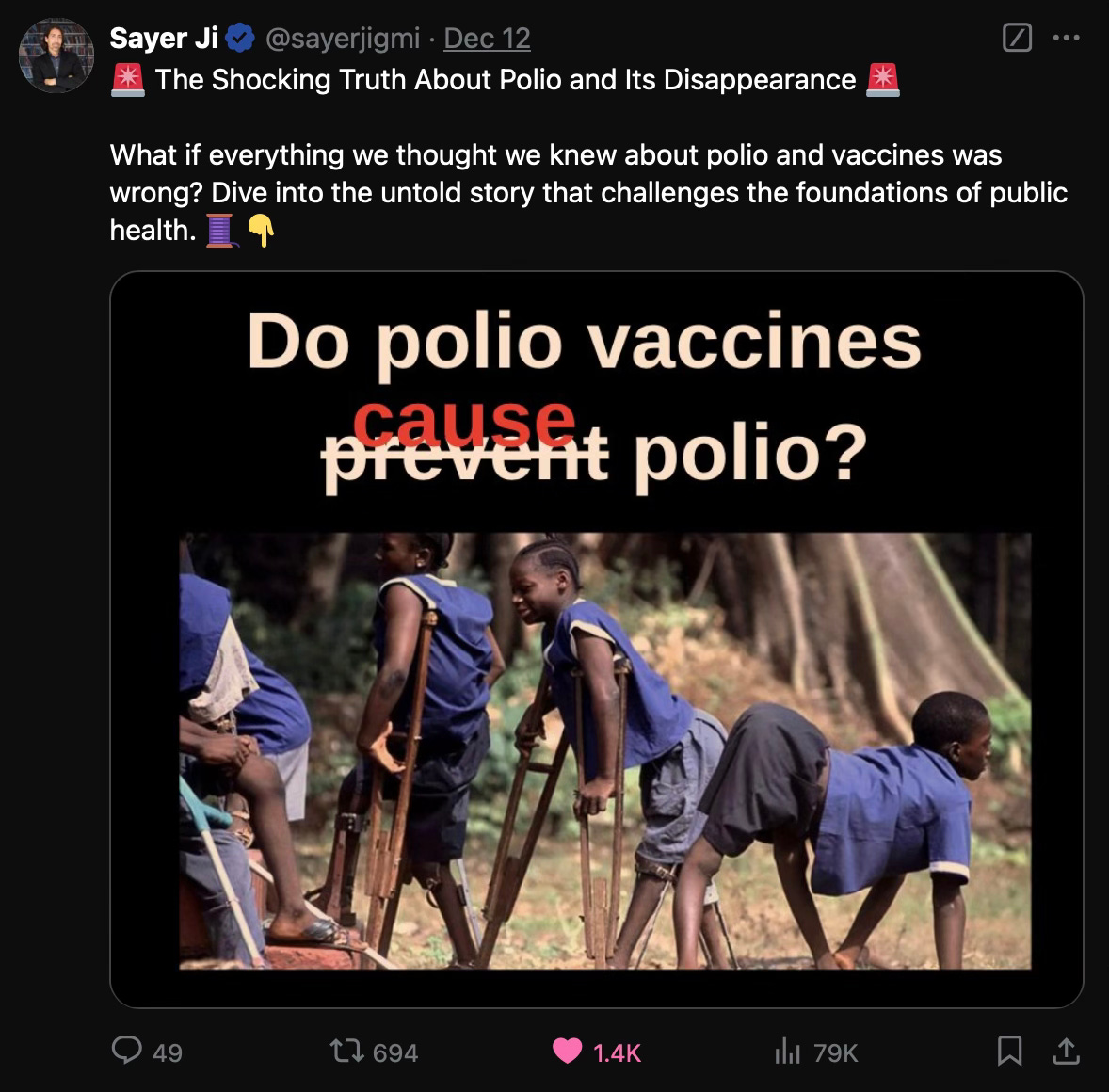A new study published in Science, Public Health Policy and the Law has revealed that Pfizer’s mRNA-based COVID-19 vaccines contain significant levels of residual DNA contamination, including sequences from the Simian Virus 40 (SV40) promoter/enhancer. This finding raises urgent safety concerns, particularly due to the
well-documented history of SV40—a virus originally linked to contaminated polio vaccines in the mid-20th century—and its potential role in causing cancer.This discovery not only highlights serious lapses in regulatory oversight for mRNA vaccines but also revives disturbing parallels to the polio vaccine debacle, where millions were unknowingly exposed to SV40. The Centers for Disease Control and Prevention (CDC) once hosted a page acknowledging this historical connection, only to later remove it, fueling public suspicion about the transparency of vaccine-related risks.
The SV40 Discovery in mRNA Vaccines
The study analyzed Pfizer’s COVID-19 vaccine batches and found DNA contamination levels three to four times higher than the international regulatory limit of 10 nanograms per dose. Even more alarming, this residual DNA included two copies of the SV40 promoter/enhancer sequence, a genetic element known to facilitate the nuclear entry of DNA into human cells. This could potentially lead to unintended genomic integration, raising profound safety concerns.1
SV40’s presence in the vaccine’s residual DNA suggests that the production process failed to eliminate plasmid DNA used in vaccine manufacturing. Compounding the issue, the study found that the DNA was packaged within lipid nanoparticles—the same delivery mechanism designed to ensure efficient delivery of mRNA to human cells—potentially spreading the contamination systemically throughout the body.2
Historical Parallels: SV40 and the Polio Vaccine Scandal
The identification of SV40 in modern vaccines is not unprecedented. Between 1955 and 1963, approximately 98 million Americans received polio vaccines contaminated with SV40, a simian virus present in the kidney cells used to produce the vaccine.3 By the early 1960s, researchers had linked SV40 to tumor formation in animal studies, and subsequent research implicated the virus in human cancers, including mesotheliomas, brain tumors, and bone cancers.4
The CDC’s now-removed webpage on this topic acknowledged the historical contamination but downplayed its impact. Critics argue that this erasure undermines public trust and hinders meaningful discussions about vaccine safety.5
The parallels between the SV40-contaminated polio vaccines and the findings in Pfizer’s COVID-19 vaccines are chilling, suggesting that lessons from history may have been ignored.
A Broader Look at SV40 Research
As compiled on GreenMedInfo.com, research has shown that SV40 is associated with multiple human cancers, including mesothelioma, brain tumors, and bone cancers, and is present in kidney and lymphatic diseases.6 It acts as a cofactor in oncogenesis, enabling tumor formation when combined with carcinogens like methylcholanthrene. Studies indicate its ability to integrate into human DNA, particularly in sensitive tissues.7
Notably, its contamination of polio vaccines is a widely cited case of vaccine oversight failure. This body of research underscores the virus’s broad oncogenic potential and the risks of its presence in biological materials.8
Implications for Human Health
The reappearance of SV40-related sequences in modern vaccines has reignited fears about its carcinogenic potential. The study’s authors warn that the SV40 promoter’s ability to facilitate DNA transport into the nucleus could lead to genomic instability and potentially trigger oncogenesis (cancer formation). Specifically, the contamination could:
Integrate foreign DNA into human genomes: The presence of SV40 sequences increases the likelihood of this integration, which could disrupt normal cellular function and initiate cancerous growth.9
Persist and shed systemically: Spike proteins produced by the vaccine were found to persist in the body for at least seven days, longer than previously claimed. The proteins were also packaged into exosomes, tiny vesicles that can transport materials throughout the body and potentially beyond.10
Contribute to autoimmune and inflammatory diseases: Residual DNA contamination could provoke aberrant immune responses, creating pathways for autoimmune diseases.11
Regulatory and Ethical Concerns
The contamination findings highlight a critical failure in quality control processes and regulatory oversight. International standards permit no more than 10 ng of residual DNA per dose, a limit exceeded in the analyzed vaccine samples. Yet, regulatory agencies appear to have approved these vaccines without fully addressing these risks.12
Adding to the ethical concerns is the lack of transparency. Just as the CDC removed its acknowledgment of SV40’s role in historical polio vaccine contamination, the silence around DNA contamination in COVID-19 vaccines suggests a troubling pattern of obscuring inconvenient truths. Critics argue that vaccine manufacturers and public health authorities should be held accountable for failing to disclose potential risks associated with their products.13
A Call for Caution
The study’s authors and a growing number of scientists are urging an immediate halt to mRNA vaccine distribution until these issues are thoroughly investigated. They emphasize that the presence of SV40 sequences and other contaminants represents a clear and present danger to public health. The echoes of the polio vaccine scandal serve as a stark reminder of the consequences of prioritizing expedience over safety.
As history appears to repeat itself, this new discovery should prompt a reevaluation of vaccine manufacturing standards and a renewed commitment to transparency. Only through rigorous oversight and open dialogue can public trust in vaccination programs be restored and maintained.
References
Klaus Steger et al., “BioNTech RNA-Based COVID-19 Injections Contain Large Amounts Of Residual DNA Including An SV40 Promoter/Enhancer Sequence,” Science, Public Health Policy and the Law, 2024. Available at: https://publichealthpolicyjournal.com/biontech-rna-based-covid-19-injections-contain-large-amounts-of-residual-dna-including-an-sv40-promoter-enhancer-sequence/
Ibid.
CDC (archived), “Polio Vaccines and Simian Virus 40,” Archived Page, 2002. Available at: https://greenmedinfo.com
Ibid.
GreenMedInfo, “CDC Disappears Page Linking Polio Vaccines to Cancer-Causing Viruses,” 2024. Available at: https://greenmedinfo.com.
GreenMedInfo, "Simian Virus 40 Research Overview," 2024. Available at: https://greenmedinfo.com/toxic-ingredient/simian-virus-40-sv40.
Ibid.
Ibid.
Klaus Steger et al., “Residual DNA in mRNA-based Pfizer-BioNTech Vaccines.”
Ibid.
Ibid.
Ibid.
GreenMedInfo, “CDC Disappears Page Linking Polio Vaccines to Cancer-Causing Viruses.”






No hay comentarios:
Publicar un comentario